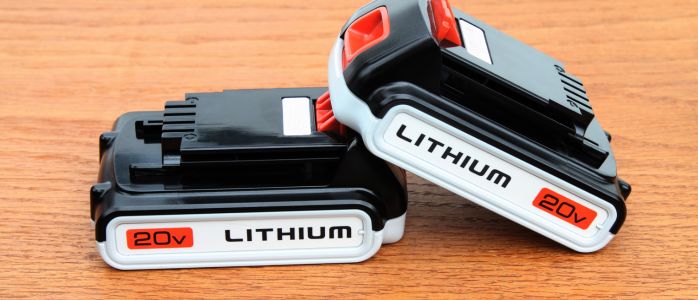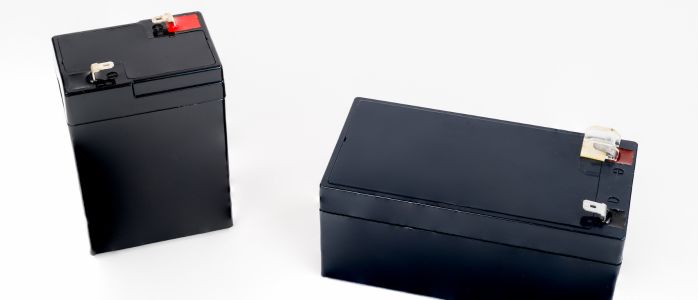Are you considering a solar battery storage system for your home? Choosing the right size is essential for maximizing performance and cost savings. In this comprehensive guide, we’ll walk you through the factors that influence “what size solar battery do I need UK”, explore the different types of solar batteries and their capacities, and share expert tips and real-life case studies to help you make the best decision for your household.
Short Summary
- Assess energy consumption, solar panel output & backup power needs to determine the perfect battery size
- Evaluate warranties and lifespans of lithium-ion or lead-acid batteries for reliable performance
- Consult a professional installer and plan for future energy needs to optimize savings
Determining Your Solar Battery Size Needs

Selecting the ideal solar battery storage system for your home ultimately depends on three key factors: energy consumption, solar panel output, and backup power requirements. By assessing these aspects, you can make an informed decision on the best solar battery to maximize your energy savings and reduce your carbon footprint.
Investing in a solar battery storage system in the UK can cost around £4,000. There are two main types of solar batteries available: lithium-ion and lead-acid. In the following sections, we’ll delve deeper into these factors and help you determine the perfect solar battery size for your needs.
Assessing Energy Consumption
To determine the appropriate solar battery size, the first step is to analyze your household’s energy usage patterns. The average daily electricity use of a UK household is 8kWh. This can significantly affect energy bills. A typical three-bedroom household consumes about 7.9 kWh per day.
The Depth of Discharge (DoD) of a solar battery is essential to consider when assessing your energy consumption. Adhering to the DoD limit will help maintain the lifespan of your solar panel battery storage. For instance, for a solar battery storage system with a capacity of 5 kW energy storage, an 80% DoD limit is recommended.
Solar Panel Output
The output of your solar panels plays a critical role in determining the size of the solar battery you need. DC systems, such as solar panels, are typically connected directly to the generation source. This happens before the electricity generation meter is installed. Although the Energy Saving Trust states that DC systems can’t be charged from the grid, they can be a great option when retrofitting a battery to an existing solar PV system.
The typical lifespan of a 5 kWh battery for solar panels is between 10-15 years. By considering the output of your solar panels when selecting a solar battery system, you can maximize energy storage and usage for maximum efficiency.
Backup Power Requirements
Evaluating your backup power needs is crucial for choosing the right solar battery size, even in case of power outages or emergencies. To ensure reliability during a power outage, ensure the engineer installs your solar battery so you can depend on it when needed.
Most solar batteries come with an excellent 10-year warranty. For example, Tesla Powerwall 2 has an impressive capacity of 13.5kWh. You can confidently choose the right solar battery size for your home by evaluating your backup power requirements.
Types of Solar Batteries

Lithium-ion and lead-acid are two major types of solar batteries, both of which are highly efficient. Each type has its benefits and drawbacks, which we will explore in the following subsections.
By understanding the advantages and disadvantages of each type, you can make an informed decision on the best solar battery for your home.
Lithium-ion Batteries
Solar panels, a popular form of solar power, are becoming increasingly common in homes. Lithium-ion batteries are the best choice to store excess energy from these panels. They offer:
- Increased efficiency
- Quicker charging times
- Higher capacity
- Longer lifespans than lead-acid batteries
The capacity range of new lithium-ion batteries is around 1kWh up to 16kWh, and their cost ranges from £3,500 to £6,000.
Although lithium-ion batteries may be more expensive than lead-acid batteries, they provide greater value in the long run. Lithium-ion batteries are an excellent investment for your solar panel system, with a lifespan of up to 10-15 years and a discharge rate of 70% – 90% of the total storage.
Lead-acid Batteries
Lead-acid batteries are another option to consider when selecting a solar battery. While they may be more affordable, with costs ranging from £2,000 to £4,500, they typically have a shorter lifespan and lower efficiency than lithium-ion batteries. Lead-acid batteries can discharge up to 50% of the total amount of storage.
However, AGM batteries, a type of lead-acid battery, offer the following advantages:
- High performance
- Maintain voltage more consistently
- Self-discharge at a slower rate
- Last for an extended period
By understanding the characteristics of lead-acid batteries, you can determine if they are the right choice for your needs.
Solar Battery Capacity Options

Solar battery capacity options can vary depending on the manufacturer and type of battery, offering an array of great options. Some common capacity options range from:
- 1.2 kWh
- 2.5 kWh
- 5 kWh
- 10 kWh
- 20 kWh
This provides plenty of choices for your needs.
In the following sections, we will explore the different solar battery capacity options available, ranging from small to large capacities.
Small Capacity Batteries (1-4 kWh)
Small-capacity batteries are perfect for households with lower energy consumption needs. By creating an ideal charging plan for your household, small-capacity batteries optimize the use of your solar panels. For example, Moixa’s Smart Battery boasts a capacity of 4.8kWh and a 10-year warranty, providing reliable power for years to come.
These batteries are not only ideal for smaller households but also for those looking to make energy-saving improvements. By selecting a small-capacity battery, you can reduce energy consumption and save on energy bills.
Medium Capacity Batteries (5-10 kWh)
Medium capacity batteries (5-10 kWh) offer a capacity range of 5-10 kWh and are perfect for residential or small-scale commercial applications. They provide backup power during grid outages or store excess solar energy for later use. Examples of medium-capacity batteries include the GivEnergy 9.5 kWh battery and the LG Chem RESU10 with a usable capacity of 8.8 kWh.
By choosing a medium-capacity battery, you can ensure that your solar panel system remains efficient and cost-effective while meeting the energy demands of an average-sized household.
Large Capacity Batteries (11-16 kWh)
Large-capacity batteries (11-16 kWh) are incredibly reliable and durable, boasting dual container construction and high-temperature resistance. They have a high amp-hour capacity, making them perfect for large off-grid photovoltaic (PV) systems. Plus, they can be recharged with electricity generated from PV solar panels or the utility grid, making them incredibly versatile.
By choosing a large-capacity battery, you can provide your household with a reliable and efficient energy solution, especially if you have high energy consumption needs. These batteries can help you achieve energy independence and reduce your reliance on the grid.
Expert Tips for Choosing the Right Solar Battery Size

When selecting a solar battery size, you must follow expert advice to ensure you make the best decision for your home.
In the following subsections, we will guide consulting a professional installer, evaluating warranties and lifespan, and planning for future energy needs.
Consult a Professional Installer
Seeking guidance from a certified solar installer is crucial for determining your home’s appropriate solar battery size. Professional installers can assess your household’s energy needs, solar panel output, and backup power requirements to recommend the best solar battery size. They are also well-versed in safety and compliance regulations and can provide warranties and support.
To find a certified solar installer, you can:
- Search online
- Ask for recommendations from friends and family
- Contact your local energy provider for more information on certified solar installers in your area.
Evaluate Warranties and Lifespan
When choosing a solar battery, it’s essential to consider both the warranty and the battery’s expected lifespan. Most solar batteries come with a 10-year warranty, ensuring your investment is protected for a long time. The typical lifespan of solar batteries is 5 to 15 years, depending on the type.
By evaluating warranties and lifespan, you can make an informed decision and confidently choose a battery that meets your long-term needs. This will help you optimize the performance of your solar panel system and maximize your energy savings.
Plan for Future Energy Needs
Anticipating potential changes in your household’s energy consumption is crucial to ensure your solar battery size remains suitable. Factors to consider include:
- Changes in lifestyle
- The number of people living in the home
- The type of appliances used
- The amount of energy used
By staying ahead of any potential changes, you can ensure that your solar battery size continues to meet your needs.
By regularly monitoring your energy consumption and adjusting your solar battery size as needed, you can guarantee that your solar battery size remains suitable over time. This will help you maintain an efficient and cost-effective solar panel system for years.
Case Studies: Solar Battery Size Selection in UK Homes

Learning from real-life examples can provide valuable insights when choosing the right solar battery size for your home. In this section, we’ll share the inspiring story of Maya Foster, a UK homeowner who expertly chose the right solar battery size for her needs while contemplating how much solar panels she should acquire.
Maya took advantage of an interest-free loan available in the UK to finance specific energy-efficient improvements and renewable systems, including solar panels and batteries. With a repayment period ranging from 5-10 years, she was able to establish a solar panel system with an impressive capacity and a long-term warranty.
By exporting stored electricity back to the grid through the Smart Export Guarantee (SEG) program, Maya reduced her energy bills and played a part in fostering a more sustainable and balanced energy supply. Her success story underscores the significance of meticulous planning and thought when deciding on the right solar battery size.
Popular Solar Battery Brands in the UK

Several popular solar battery brands in the UK offer unique features, capacities, and pricing. Samsung and Tesla are well-known tech brands. They offer home-energy storage systems. Energy companies like EDF Energy, Eon and Ovo offer a range of solar panel and storage packages. These solutions are becoming increasingly popular as an energy source for both home and business customers.
The Powervault 3 is a highly sought-after solar battery. It’s considered the best on the market. It offers 8 kWh usable capacity and a 10-year warranty. Tesla Powerwall, another popular choice, provides a 13.5 kWh usable capacity and a 10-year warranty.
When selecting a solar battery, it’s essential to compare different brands’ features, capacities, and pricing. Doing so lets you find the perfect solar battery for your home and enjoy the benefits of renewable energy.
Summary
In conclusion, choosing the right solar battery size for your home is crucial for maximizing performance and cost savings. By analyzing your energy consumption, considering solar panel output and backup power requirements, understanding different types of solar batteries and their capacities, and following expert advice, you can make an informed decision that best suits your needs. Embrace the power of renewable energy and reduce your carbon footprint with the perfect solar battery size for your home.
Frequently Asked Questions
How do I know what size battery to get for my solar panel?
To determine the battery size needed for your solar panel, calculate your daily energy use, estimate how many days your solar system will be without sun, and multiply by two to get the correct battery size.
Additionally, consider your battery’s DoD and the lowest temperature the battery bank will experience.
Is a 5kw solar battery enough?
For moderate use, a 5kW solar battery should suffice; however, if you need to run heavy-duty energy guzzlers like air conditioners or a pool pump, it might not provide enough power.
What can a 10kW solar battery run?
A 10kW solar battery can easily power a 5+ bedroom home, including all lights, electronics, refrigerators, washers and dryers, central air conditioning, and a pool pump. It’s the perfect choice for your significant household energy needs.
How long will a 5kWh battery last?
A 5kWh solar battery can last up to ten hours when used with light-duty appliances and will drain faster if heavy-duty appliances are used.
Heavy-duty appliances require more energy to run so the battery will drain faster. When deciding on the battery size you need, it is essential to consider the type of appliances you use.
Is solar with battery storage worth it?
Solar battery storage systems offer many advantages and can provide a great return on investment if you’re trying to move off the grid entirely. With enough storage capacity and solar generation, your household can be powered completely with renewable energy – making it worth the cost.
